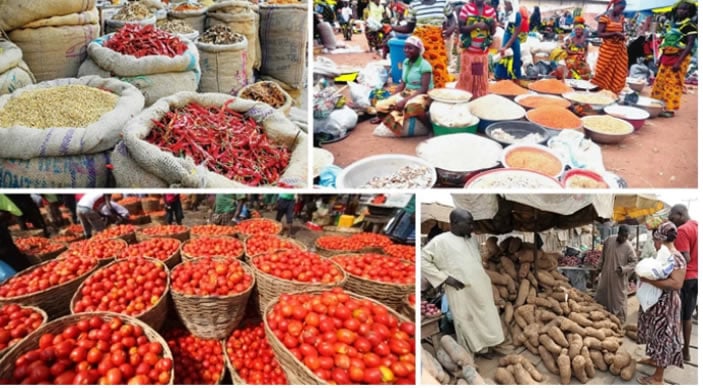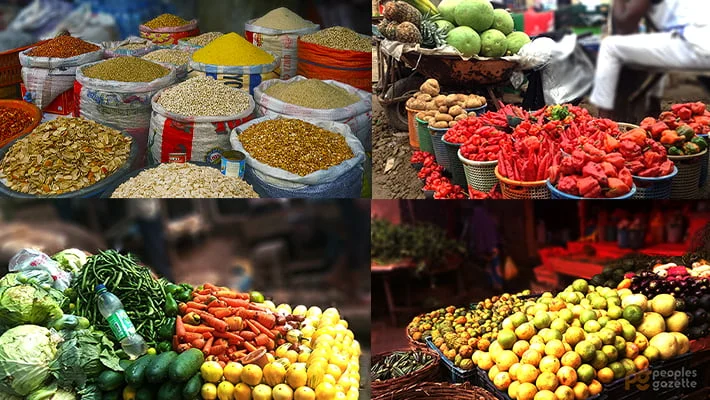The Nigeria Director of the Agricultural Development for Economic Growth Initiative (AgDEG), Mr. Joseph Unogwu has cautioned that the Federal Government’s duty-free food imports and resulting price crash could worsen Nigeria’s food insecurity.
Unogwu gave the warning during an interview in Makurdi, Benue State.
The Federal Government had, in July 2024, opened borders for a 150-day window to allow duty-free imports of rice, maize, and wheat. The measure, according to the Minister of Agriculture and Food Security, Abubakar Kyari, was meant to curb food inflation and ease the high cost of living.
Unogwu cautioned that flooding the market with imports would cripple local food production, stressing that no nation cedes its food production to another and remains secured. He said “Farmers are already leaving their farms due to high costs and poor returns and by focusing only on lowering prices, Nigeria has become a dumping ground for surplus from other countries”.
The Director warned that the policy would destroy rural livelihoods, fuel unemployment, weaken the naira, and make Nigeria more import-dependent. “The government itself admitted that Nigeria’s food import bill is over US$10 billion, which is unsustainable for the economy, as this approach will expose the country to hunger and vulnerability”, he added.
He revealed that the policy could also swell the pool of people vulnerable to recruitment into criminal activities, as more farming families lose their means of survival, urging government to address insecurity, high input costs, and lack of incentives for farmers, rather than relying on food imports.
The Director noted further that “If the government supported farmers with inputs, subsidised production costs, and guaranteed buyback of produce at fair prices, food prices would fall sustainably. Fertilizer is ₦50,000 per bag, agrochemicals and seeds are unaffordable, without tackling these challenges, Nigeria will keep rolling back progress and deepening dependency”.
Meanwhile, available data from the National Bureau of Statistics showed that Nigeria’s agricultural import bill soared to N2.22 trillion in the first half of 2025, drawing strong criticism from farmers, rice millers, and stakeholders, who argue that the Federal Government’s policies are undermining local production and worsening food insecurity.
The stakeholders also criticised the recent order by President Bola Tinubu to reduce food prices. On September 11, 2025, Tinubu had ordered a Federal Executive Council committee to further crash the prices of food items across the country.
The Minister of State for Agriculture and Food Security, Sabi Abdullahi, made this known in Abuja, while presenting a paper at a one-day capacity-building workshop for journalists covering the Senate, saying the President’s order would be enforced to further crash prices of food items by ensuring the safe passage of products through various routes across the country.

The National President of the All Farmers Association of Nigeria, Kabir Ibrahim, explained that the cost of food would go down, if transportation costs go down, but that alone is not enough. “Our farmers are complaining that the prices are so low that they cannot buy fertilizer, as importation has dealt with our farmers”, he said.
Ibrahim said “What we are telling the government is that it is the purchasing power of the naira that is causing problems, saying even if food prices fall, people do not have the money to buy. That’s why you are not seeing any impact”.
On his part, the National Secretary of Small-Scale Women Farmers Organisation in Nigeria, Chinasa Asonye, highlighted how high input costs and poor-quality subsidised products have crippled production, saying, fertilizers and herbicides have become unaffordable. “Some of the subsidised inputs distributed were expired and caused more harm than good. The government must subsidise inputs so farmers can produce at a reasonable cost”, Asonye advised.

